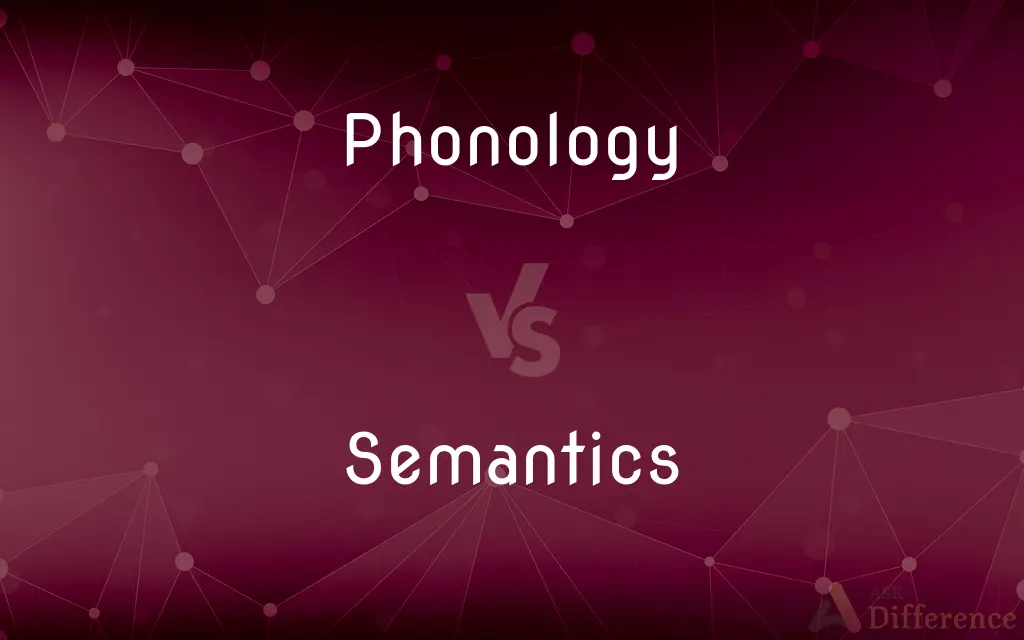Phonology vs. Semantics — What's the Difference?

Difference Between Phonology and Semantics
ADVERTISEMENT
Compare with Definitions
Phonology
Phonology is a branch of linguistics that studies how languages or dialects systematically organize their sounds (or signs, in sign languages). The term also refers to the sound system of any particular language variety.
Semantics
Semantics (from Ancient Greek: σημαντικός sēmantikós, "significant") is the study of meaning, reference, or truth. The term can be used to refer to subfields of several distinct disciplines, including philosophy, linguistics and computer science.
Phonology
The study of speech sounds in language or a language with reference to their distribution and patterning and to tacit rules governing pronunciation.
Semantics
The study or science of meaning in language.
Phonology
The sound system of a language
The phonology of English.
ADVERTISEMENT
Semantics
The competence of a speaker with regard to the interpretation of the meaning of linguistic structures.
Phonology
The study of the way sounds function in languages, including phonemes, syllable structure, stress, accent, intonation, and which sounds are distinctive units within a language.
Semantics
The study of relationships between signs and symbols and what they represent. Also called semasiology.
Phonology
The way sounds function within a given language; a phonological system.
Semantics
The meaning or the interpretation of a word, sentence, or other language form
We're basically agreed.
Let's not quibble over semantics.
Phonology
The science or doctrine of the elementary sounds uttered by the human voice in speech, including the various distinctions, modifications, and combinations of tones; phonetics. Also, a treatise on sounds.
Semantics
(linguistics) A branch of linguistics studying the meaning of words.
Semantics is a foundation of lexicography.
Phonology
The study of the sound system of a given language and the analysis and classification of its phonemes
Semantics
The study of the relationship between words and their meanings.
Semantics
The individual meanings of words, as opposed to the overall meaning of a passage.
The semantics of the terms used are debatable.
The semantics of a single preposition is a dissertation in itself.
Semantics
(computer science) The meaning of computer language constructs, in contrast to their form or syntax.
File sharing and locking semantics
Semantics
The study of the meanings of words and of the sense development of words; - formerly called semasiology.
Semantics
A doctrine and philosophical approach to language and its relationship to thought and behavior, developed by Alfred Korzybski (1879-1950), which holds that the capacity to express ideas and thereby improve one's interaction with others and one's environment is enhanced by training in the more critical use of words and other symbols; - also called general semantics.
Semantics
The meanings of words as they are used to achieve an effect; especially, the multiple meanings of words or the multiplicity of words having the same meaning; - used in referring to the confusion that can be caused (intentionally or unintentionally) by multiple meanings; as, there's no real difference, it's only a matter of semantics.
Semantics
The study of language meaning
Share Your Discovery

Previous Comparison
Motorhead vs. Gearhead
Next Comparison
Cyanobacteria vs. Stromatolite















































